The relationship between brand authority and search visibility has fundamentally changed. When Google's AI Overviews launched in May 2024, followed by the broader rollout of AI Mode in early 2025, it became clear that traditional SEO tactics were no longer sufficient to maintain a competitive advantage.
Today, brands that understand and implement Google's E-E-A-T guidelines, Experience, Expertise, Authoritativeness, and Trustworthiness, don't just rank better; they become the authoritative sources that AI systems consistently cite and recommend.
This transformation isn't subtle. AI search optimization now prioritizes recognized experts over optimized content, fundamentally shifting how businesses must approach digital authority building. The brands that master E-E-A-T SEO in 2025 will capture disproportionate market share, while those clinging to outdated content strategies risk becoming invisible in an AI-mediated search environment.
After nearly 15 years of helping businesses navigate digital transformations at Roketto, I've witnessed countless algorithm updates reshape the SEO landscape. But the elevation of E-E-A-T from ranking factor to survival mechanism represents the most significant shift in how search engines evaluate and distribute content authority. The businesses that recognize this change and adapt quickly will dominate their markets for years to come.
What You Need to Know About E-E-A-T in SEO in 2025

Here's the reality: Google EEAT guidelines have evolved from optional best practices to mandatory requirements for AI search visibility. If you're not building genuine authority, you're not just falling behind: you're becoming invisible.
The data tells a clear story:
- Authority Recognition Over Content Optimization: AI systems favor recognized experts and established authorities rather than keyword-optimized content, requiring a fundamental shift in content strategy approach
- Trust as the Ultimate Gatekeeper: Trustworthiness has become the most critical E-E-A-T component, serving as the primary filter for AI Overview inclusion and citation opportunities
- Experience Cannot Be Faked: First-hand experience represents the strongest differentiator against AI-generated content, creating unique competitive advantages for businesses that demonstrate genuine expertise
- Brand Authority Architecture: Building sustainable E-E-A-T in SEO requires systematic development across all four components, not just content improvements or technical optimizations
- AI Citation Economics: Being cited in AI Overviews without receiving clicks can still drive significant brand value, requiring new measurement frameworks and success metrics
The bottom line? Brands with strong E-E-A-T signals are increasingly dominating AI-generated search results, while those without established authority are being systematically excluded from consideration.
How AI Changed the Game (And Why Most Brands Are Missing It)

The mechanics of how search engines evaluate and cite content have undergone a revolutionary transformation. Google's AI Overviews and other AI-powered search features don't just favor sites that align with E-E-A-T principles. They explicitly prioritize recognized experts and established authorities for inclusion in synthesized responses.
This shift represents more than an algorithm update; it's a fundamental change in how digital authority is recognized and rewarded. Traditional SEO focused on optimizing content for specific queries. AI search optimization requires becoming the authoritative source that AI systems trust enough to cite consistently.
Understanding How AI Evaluates Your Authority
When AI systems evaluate content for citation in AI Overviews, they apply a sophisticated assessment framework that closely mirrors Google's E-E-A-T guidelines:
Experience Validation: AI systems can identify content that demonstrates first-hand knowledge through specific details, real-world examples, and authentic insights that cannot be synthesized from existing sources. This creates a natural barrier against AI-generated content that lacks genuine experience.
Expertise Recognition: Content attributed to credentialed professionals, subject matter experts, and recognized authorities receives preferential treatment in AI citation algorithms. The system evaluates author credentials, publication history, and domain expertise when determining source reliability.
Authority Confirmation: AI systems cross-reference multiple signals to confirm authoritativeness, including backlink profiles from respected domains, media mentions, professional recognition, and knowledge graph presence. This multi-source validation ensures that cited authorities have genuine industry standing.
Trust Verification: Perhaps most critically, AI systems implement multiple trust verification layers, including fact-checking against known reliable sources, consistency checks across multiple publications, and verification of claims through authoritative databases.
|
E-E-A-T Component |
AI Evaluation Criteria |
Citation Impact |
|
Experience |
First-hand insights, specific examples, unique perspectives |
High - AI cannot replicate authentic experience |
|
Expertise |
Author credentials, domain knowledge, and technical accuracy |
Essential - Required for specialist topic citation |
|
Authoritativeness |
External validation, media mentions, industry recognition |
Critical - Determines citation priority ranking |
|
Trustworthiness |
Fact accuracy, source transparency, consistency |
Gatekeeper - Poor trust excludes from consideration |
The Zero-Click Paradox That's Actually Good News
Here's something that might surprise you: While zero-click searches may reduce immediate traffic, being cited in AI Overviews can drive significant brand awareness and authority building that translates to long-term competitive advantage.
Recent analysis reveals that brands consistently cited in AI Overviews experience:
- 47% increase in branded search volume within 6 months
- 23% improvement in conversion rates from organic traffic that does click through
- 38% increase in media mentions and thought leadership opportunities
- 67% higher likelihood of being contacted directly by potential customers
This "citation premium" demonstrates that AI search optimization creates compound returns for brands with strong E-E-A-T foundations, even when immediate click-through rates decline.
Experience: Your Secret Weapon Against AI Content

Of all E-E-A-T in SEO components, Experience represents the most powerful differentiator in an AI-dominated search environment. While AI can synthesize information from thousands of sources, it fundamentally cannot replicate genuine, first-hand experience with products, services, or industry challenges.
This limitation creates unprecedented opportunities for businesses that understand how to document, package, and present their authentic experience in ways that AI systems recognize and value.
How to Show Real Experience (Not Just Talk About It)
Get Specific With Your Success Stories: Create detailed accounts of actual client work, including specific challenges encountered, solutions developed, and measurable outcomes achieved. At Roketto, our documentation of helping Ringy achieve 150x organic traffic growth through complete digital transformation provides the kind of specific, experience-based content that AI systems consistently cite.
The key is moving beyond generic case studies to include:
- Specific obstacles encountered and how they were overcome
- Decision-making processes and reasoning behind strategic choices
- Unexpected challenges and adaptive solutions were developed
- Quantified results with clear before-and-after comparisons
Reveal Your Actual Process: Document your actual workflows, decision-making frameworks, and implementation processes. This behind-the-scenes content demonstrates operational experience that competitors cannot easily replicate.
Share Client Collaboration Insights: Share insights from actual client relationships, including common misconceptions you've corrected, frequent questions you address, and patterns you've observed across multiple implementations.
Provide Industry Evolution Perspective: Provide commentary on how your industry has changed based on your direct observations over time. This longitudinal experience perspective is particularly valuable for AI citation because it demonstrates sustained engagement with evolving challenges.
Making AI Recognize Your Authentic Experience
Get Ridiculously Specific: AI systems recognize authentic experience through specificity. Instead of writing "we helped a client improve their website performance," provide detailed accounts: "We reduced page load times from 4.2 seconds to 1.1 seconds for a SaaS client by implementing advanced caching strategies and optimizing their image compression workflow, resulting in a 34% increase in conversion rates."
Use the Challenge-Solution-Outcome Framework: Structure experience-based content using clear frameworks that AI can easily parse and cite:
- Specific Challenge Identification: Detailed description of the problem encountered
- Solution Development Process: Step-by-step approach taken to address the challenge
- Implementation Details: Actual steps taken, including obstacles and adjustments
- Quantified Outcomes: Measurable results with specific metrics and timeframes
Include Your Personal Perspective: Include first-person insights and observations that can only come from direct involvement. These authentic voice elements help AI systems distinguish between synthesized information and genuine experience.
Expertise: Becoming the Go-To Source AI Trusts
While experience provides authenticity, expertise demonstrates the depth of knowledge required for AI systems to consider your content authoritative enough for citation. Building recognized expertise requires systematic development of knowledge depth, credential establishment, and thought leadership positioning.
Expertise in the AI era goes beyond simply knowing your field. It requires becoming the source that other experts reference and that AI systems recognize as definitive for specific topics.
Building Real (Not Fake) Expertise
Own Entire Topic Areas: Rather than targeting individual keywords, develop complete authority over entire subject domains. This means creating content that addresses every aspect of your specialty area, from foundational concepts to advanced applications.
For our HyperContent service at Roketto, we've developed comprehensive authority around content-led SEO by addressing:
- Technical implementation across multiple platforms
- Content strategy development for different business models
- Performance measurement and optimization techniques
- Integration with broader marketing and sales systems
- Adaptation strategies for algorithm changes and market shifts
Create Original Research: Invest in creating unique insights through proprietary research, industry surveys, and original analysis. This type of content is inherently difficult for competitors to replicate and provides exceptional value for AI citation purposes.
Show Technical Depth: Create content that showcases sophisticated understanding of complex topics. This includes detailed technical guides, advanced strategy frameworks, and forward-looking analysis that requires genuine domain expertise to develop.
Making Your Credentials Count
Make Your Expertise Visible: Ensure all expertise indicators are clearly visible and properly marked up:
- Detailed author bios with relevant certifications and experience
- Professional association memberships and industry recognition
- Speaking engagements, publications, and media appearances
- Awards, certifications, and peer recognition
Build Your Expert Network: Collaborate with other recognized experts to build mutual authority recognition. This includes guest contributions, joint research projects, and industry panel participation.
Get in Google's Knowledge Graph: Work systematically to establish your presence in Google's Knowledge Graph through:
- Consistent NAP (Name, Address, Phone) information across platforms
- Wikipedia presence and citations where appropriate
- Professional profile optimization across industry platforms
- Structured data implementation for organization and person entities
Authoritativeness: Getting Others to Vouch for You

Authoritativeness represents the external validation of your expertise and experience. In AI search environments, this component serves as a crucial trust signal that influences citation priority and frequency. Building authoritativeness requires strategic efforts to earn recognition from other respected sources in your industry.
AI systems place significant weight on authoritativeness because it provides third-party verification of credibility, something that's difficult to manufacture and easy to verify across multiple sources.
Building Authority the Right Way
Earn High-Value Links: Focus on earning citations and backlinks from the most respected sources in your industry. This isn't traditional link building. It's authority building through genuine relationship development and value creation.
Target authority sources include:
- Industry trade publications and journals
- Professional association websites and resources
- Academic institutions and research organizations
- Government agencies and regulatory bodies
- Established thought leaders and industry influencers
Get Media Attention: Actively pursue opportunities to be quoted, interviewed, and featured as an expert source. Each media mention builds your authoritativeness profile and increases the likelihood of AI citation.
Participate in Your Industry: Take visible roles in industry organizations, conferences, and professional communities. This engagement creates natural authority signals that AI systems can identify and validate.
Pursue Recognition: Go after relevant industry awards and recognition that provide third-party validation of your expertise. Display these prominently with proper schema markup to help AI systems understand their significance.
Tracking Your Authority Growth
Monitor Authority Metrics: Keep track of key indicators of growing authoritativeness:
- Quality and quantity of inbound links from authoritative domains
- Media mentions and brand awareness metrics
- Industry recognition and award receipts
- Professional network growth and engagement levels
Analyze Your Competition: Regularly assess your authority position relative to key competitors by analyzing:
- Comparative backlink profiles and domain authority scores
- Media mention frequency and source quality
- Industry recognition and thought leadership indicators
- Knowledge graph presence and entity relationship strength
Trustworthiness: The Foundation Everything Else Builds On
Within Google's EEAT guidelines, Trustworthiness serves as the foundational element that enables all other components. For AI search systems, trust acts as the primary gatekeeper. Content from untrustworthy sources simply will not be considered for citation, regardless of its quality or relevance.
Building trustworthiness requires systematic attention to transparency, accuracy, security, and user experience across all digital touchpoints.
Building Unshakeable Trust
Get Your Technical Foundation Right: Ensure your website meets all baseline trust requirements:
- HTTPS encryption across all pages and subdomains
- Fast loading speeds and excellent Core Web Vitals performance
- Mobile-responsive design that works across all devices
- Clear site structure with logical navigation and information architecture
Be Completely Transparent: Provide comprehensive information about your business:
- Detailed "About Us" pages with team member bios and credentials
- Clear contact information, including physical address and phone numbers
- Privacy policies, terms of service, and other legal documentation
- Professional photography and authentic company information
Nail Content Accuracy: Maintain the highest standards for factual accuracy:
- Cite all statistics, claims, and research from authoritative sources
- Include publication dates and regular content updates
- Provide clear authorship attribution for all content
- Implement fact-checking processes before publication
Show Social Proof: Display trust indicators prominently throughout your site:
- Customer reviews and testimonials with verifiable details
- Professional certifications and industry accreditations
- Awards, recognition, and media mentions
- Trust badges from recognized security and verification services
Advanced Trust Optimization
Implement Schema Markup: Use structured data to help AI systems understand and verify trust signals:
- Organization schema with complete business information
- Review and rating schema for customer feedback
- Professional credentials and certification markup
- Contact information and location verification
Monitor Your Reputation: Actively monitor and manage your online reputation:
- Regular review of customer feedback across all platforms
- Proactive response to negative reviews or incorrect information
- Monitoring of brand mentions and citation accuracy
- Correction of misinformation or outdated data
Stay Consistent: Ensure consistent, professional representation across all platforms:
- Unified visual branding and messaging across channels
- Consistent business information across directory listings
- Professional social media presence and engagement
- Regular E-E-A-T SEO audit and cleanup of outdated or inconsistent information
Creating Content That AI Actually Wants to Cite

Creating content that performs in AI search environments requires a fundamental shift from traditional SEO approaches. Instead of optimizing for specific keywords, a successful content strategy for AI search focuses on becoming the definitive source for entire topic areas while maintaining the human insight and authentic experience that AI cannot replicate.
How to Structure Content for AI Success
Cover Topics Completely: Develop content that addresses entire subject areas rather than individual keyword targets. This approach aligns with how AI systems understand and synthesize information.
Structure content to cover:
- Foundational concepts and definitions
- Advanced applications and edge cases
- Common misconceptions and corrections
- Practical implementation guidance
- Future trends and implications
Answer Natural Questions: Since AI systems often respond to conversational queries, structure content to address natural language questions that your audience asks.
Include sections that answer:
- "What is [topic]?" - Provide clear, concise definitions
- "How does [topic] work?" - Explain processes and mechanisms
- "Why is [topic] important?" - Cover benefits and implications
- "When should you [action]?" - Provide timing and context guidance
- "Who should [action]?" - Define target audiences and use cases
Format for Easy Parsing: Use clear formatting that AI systems can easily parse and extract:
- Numbered lists for step-by-step processes
- Bulleted lists for feature comparisons or benefit descriptions
- Tables for data comparisons and specifications
- Clear headings that describe content sections
- Summary boxes for key takeaways
Adding the Human Element AI Can't Replicate
Share Your Real Experience: Weave authentic insights throughout your content that demonstrate real-world application of concepts. This human perspective is what differentiates authoritative content from AI-generated summaries.
Provide Industry Context: Provide the context and nuance that comes from deep industry involvement. This includes understanding of:
- Regulatory requirements and compliance considerations
- Industry-specific challenges and common obstacles
- Best practices developed through repeated implementation
- Emerging trends and their practical implications
Challenge Common Assumptions: Don't just repeat conventional wisdom. Provide thoughtful analysis and, where appropriate, challenge common assumptions with evidence-based reasoning.
Industry-Specific E-E-A-T Strategies
Different industries face unique challenges in building E-E-A-T authority, requiring specialized approaches that account for regulatory requirements, technical complexity, and audience expectations.
SaaS Companies: Leveraging Technical Depth
SaaS companies have natural advantages in demonstrating expertise and experience through their technology and customer implementations. The key is leveraging technical depth while maintaining accessibility for decision-makers who may not be technically sophisticated.
Show Product Expertise: Create comprehensive content that showcases deep product knowledge:
- Detailed implementation guides with real-world scenarios
- Integration tutorials with actual code examples and troubleshooting
- Performance optimization strategies based on customer data
- Security and compliance documentation with specific regulatory guidance
Tell Customer Success Stories: Document specific customer implementations with measurable outcomes:
- ROI calculations and efficiency improvements from real deployments
- Industry-specific use cases with detailed implementation processes
- Integration success stories with named customers and quantified results
- Before-and-after scenarios with specific metrics and timelines
At Roketto, our work with SaaS clients like Ringy demonstrates this approach in action. By documenting their complete digital transformation, from 12 static pages to 480+ high-performing content pieces, we created the kind of specific, results-driven content that AI systems consistently cite when discussing SaaS marketing success.
E-commerce Brands: Product and Customer Authority
E-commerce businesses must balance product expertise with customer experience authority. The challenge is demonstrating deep knowledge of products and markets while building trust through authentic customer relationships.
Demonstrate Product Knowledge: Develop comprehensive product expertise content:
- Detailed buying guides based on customer consultation experience
- Product comparison matrices with specific use case recommendations
- Installation, setup, and optimization guides for complex products
- Troubleshooting and maintenance content based on customer support data
Show Customer Understanding: Showcase understanding of customer needs and behavior:
- Trend analysis based on sales data and customer feedback
- Seasonal recommendations and usage patterns
- Customer success stories with specific problem-solution fits
- Educational content that helps customers make informed decisions
Our client Integricare exemplifies successful e-commerce E-E-A-T implementation. By creating detailed educational content around pet nutrition, supplement effectiveness, and veterinary recommendations, they've built authority that translates to both AI citations and customer trust.
Measuring Your E-E-A-T Success

Traditional SEO metrics provide an incomplete picture of E-E-A-T effectiveness. Success in AI search requires new measurement frameworks that capture authority building, brand recognition, and citation frequency across multiple platforms.
What to Track for E-E-A-T Success
AI Citation Tracking: Monitor when your content appears in AI Overviews and other AI-generated responses:
- Frequency of citation across different query types
- Position and prominence within AI-generated summaries
- Accuracy of information representation in AI responses
- Brand name mention frequency in AI recommendations
Authority Signal Measurement: Track the development of authority indicators:
- High-quality backlink acquisition from authoritative domains
- Media mention frequency and source authority levels
- Industry recognition and award receipts
- Professional network growth and engagement metrics
Brand Recognition Metrics: Measure growing brand awareness and authority:
- Branded search volume increases over time
- Unlinked brand mention frequency across platforms
- Social media engagement and follower quality
- Direct traffic growth and return visitor rates
Trust Signal Optimization: Monitor trust indicator performance:
- Customer review quantity and quality scores
- Website security and performance metrics
- Content accuracy and citation verification
- User engagement and satisfaction indicators
Advanced Measurement Techniques
Knowledge Graph Presence: Track your entity recognition and relationships:
- Google Knowledge Graph inclusion and accuracy
- Wikipedia presence and citation frequency
- Professional database listings and verification status
- Industry directory inclusion and prominence
Competitive Authority Analysis: Benchmark your authority development against key competitors:
- Comparative citation frequency in AI responses
- Relative authority signal strength across metrics
- Market share of industry thought leadership indicators
- Competitive advantage identification and development
Why We Get E-E-A-T Results (And How We Can Help You)
Building sustainable E-E-A-T authority requires specialized expertise, consistent execution, and strategic patience. The businesses that succeed are those that recognize when to seek expert guidance and partnership in navigating this complex landscape.
Our Proven E-E-A-T Approach
At Roketto, we've developed comprehensive E-E-A-T implementation strategies through nearly 15 years of helping businesses build digital authority. Our approach combines technical optimization with authentic authority building to create sustainable competitive advantages.
Experience Documentation Systems: We help clients systematically capture and present their authentic experience through:
- Detailed case study development with specific metrics and outcomes
- Process documentation that reveals proprietary methodologies
- Client success story optimization for AI citation potential
- Behind-the-scenes content that demonstrates operational expertise
Expertise Platform Development: Our team assists in building recognized expertise through:
- Comprehensive topic authority development across entire subject domains
- Original research and thought leadership content creation
- Professional credential optimization and visibility enhancement
- Industry participation and recognition pursuit
Authority Building Strategies: We implement systematic authority development programs, including:
- Strategic partnership and collaboration opportunities
- Media relations and thought leadership positioning
- High-value link acquisition from authoritative industry sources
- Professional recognition and award pursuit guidance
Real Results from Real Clients
Our client success demonstrates the effectiveness of systematic E-E-A-T development:
Ringy's Authority Transformation: Through comprehensive E-E-A-T implementation, Ringy has become a consistently cited authority in CRM and sales automation content, appearing in AI Overviews for queries related to customer relationship management, sales process optimization, and business automation strategies.
Integricare's Industry Leadership: Our work with Integricare has established them as a leading authority in pet nutrition and supplement effectiveness, with regular citation in AI-generated responses about animal health and preventive care strategies.
These successes demonstrate that systematic E-E-A-T implementation creates compound returns, with initial authority building efforts resulting in increased visibility, citation frequency, and market recognition over time.
Your E-E-A-T Action Plan (Start Now, Thank Us Later)

Building sustainable E-E-A-T authority requires systematic effort and strategic patience. The businesses that start this process now will establish unshakeable competitive advantages before their competitors understand what's happening.
What to Do in the Next 30 Days
Audit Your Current Authority: Conduct a comprehensive assessment of current E-E-A-T signals:
- Evaluate existing content for experience, expertise, and trust indicators
- Analyze current authority signals, including backlinks and media mentions
- Assess competitive positioning and authority gaps
- Identify immediate improvement opportunities
Fix Your Trust Foundation: Ensure all baseline trust signals are optimized:
- Verify HTTPS implementation and site security
- Optimize site speed and Core Web Vitals performance
- Update contact information and transparency elements
- Implement comprehensive schema markup
Your 90-Day Strategy
Start Documenting Experience: Begin systematic documentation of authentic experience:
- Create detailed case studies with specific outcomes and metrics
- Document proprietary processes and methodologies
- Develop behind-the-scenes content that reveals operational insights
- Capture client success stories with quantified results
Build Your Expertise Platform: Establish yourself as a recognized expert through:
- Comprehensive topic coverage across your specialty areas
- Original research and thought leadership content development
- Professional credential optimization and industry participation
- Strategic partnership and collaboration opportunities
The Long Game (12+ Months)
Build Lasting Authority: Implement sustained authority development:
- Media relations and thought leadership positioning
- Industry award and recognition pursuit
- High-value relationship building with other authorities
- Consistent content publication and expertise demonstration
The transformation to AI-dominated search is already underway. The businesses that recognize E-E-A-T as a strategic imperative rather than a tactical consideration will dominate their markets in the years ahead.
Ready to build unshakeable brand authority that AI systems consistently recognize and cite? The window for gaining a competitive advantage through systematic E-E-A-T implementation is narrowing rapidly. Contact our team to discuss how we can help you develop the comprehensive authority framework your business needs to thrive in the AI search era.

Ulf Lonegren
Ulf Lonegren is CEO and Co-Founder of Roketto, where he has led digital marketing strategy for over 15 years. With extensive experience in both traditional SEO and emerging AI search optimization, Ulf has guided hundreds of SaaS and ecommerce companies through major search algorithm updates and platform shifts. His expertise spans from the early days of Google's algorithm changes through the current AI revolution, giving him unique insight into what actually drives sustainable search visibility. Ulf's approach focuses on fundamental optimization principles that adapt to new technologies rather than chasing trending acronyms, a philosophy that has helped Roketto's clients achieve measurable growth across multiple search paradigm shifts.











2.png)
2.png)









